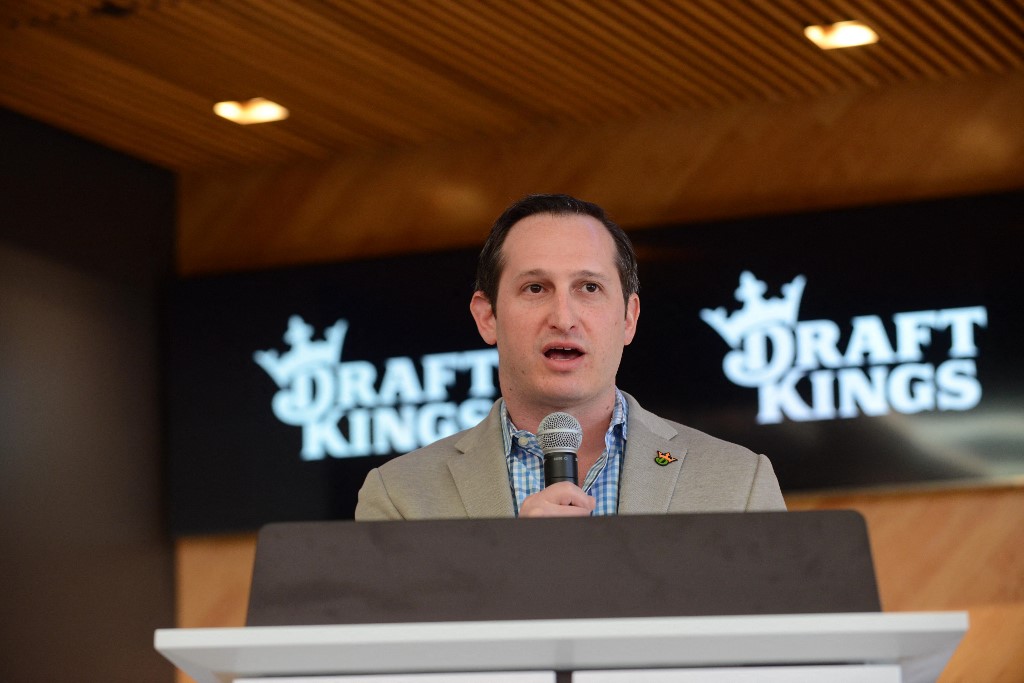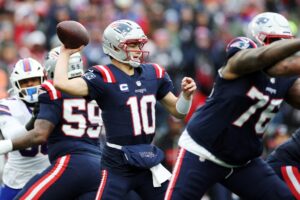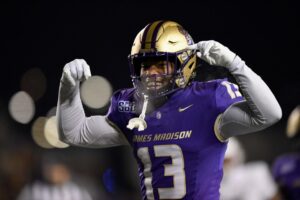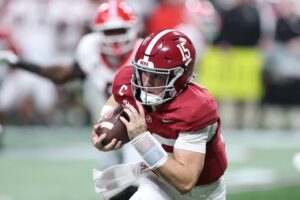DraftKings Sued by Gambler Who Says He Was Screwed Out of $14M Winning Bets
-
 Scott Kacsmar
Scott Kacsmar
- June 3, 2025

In the post-PASPA era of legal sports betting, US gamblers were promised protection, transparency, and a level playing field through regulated sportsbooks. But in practice, major books like DraftKings and FanDuel continue to operate with a disturbing amount of unchecked power—and regulators often do little to stop it.
That’s the sobering reality behind a new $14 million lawsuit against DraftKings by Nicholas Bavas, a 37-year-old Iowa man who claims the company voided his life-changing parlay bets after the fact and rewrote the rules to justify it.
Bavas’ Nightmare: A $14M Parlay Win That Never Paid
Bavas placed five parlays totaling $325 on the 2024 AT&T Pebble Beach Pro-Am, a PGA golf tournament scheduled for February 1–4. His wagers, all submitted between 10 p.m. Saturday and 12:01 a.m. Sunday, capitalized on player standings after three rounds and aimed to predict final finishing positions in a variety of combinations. If the fourth and final round was completed as planned, and the leaderboard didn’t shift dramatically, the payout would be an astronomical $14.2 million.
Then nature intervened. Bad weather forced the PGA to call off the final round, making the 54-hole standings official. Every leg of Bavas’ parlays hit. But instead of honoring the win, DraftKings voided the bets, refunded his $325, and cited a rule that—according to the lawsuit—didn’t apply to parlay bets at the time.
In a 39-page complaint, Bavas accuses DraftKings of a “unilateral breach of contract”, stating the company “changed the rules after the fact” and manipulated policy language specifically to deny his payout. Screenshots reportedly show DraftKings updated their betting rules on the site only after the event was ruled complete and the bets had become winners.
“They just told him the bet would not be honored,” said attorney Darren Kaplan, who is representing Bavas alongside co-counsel Benjamin Lynch. “If he had lost the bet and asked for his money back, DraftKings would’ve kept it. They can’t have it both ways.”
DraftKings has not issued a public comment.
A Pattern of Exploitation
While the $14 million figure grabs headlines, Bavas’ experience isn’t an isolated one. Since the legalization of online sports betting in 2018, dozens of bettors have reported similar injustices, highlighting a pattern of shady practices among industry leaders and tepid regulatory oversight.
- In Baltimore, city officials sued DraftKings and FanDuel last month for allegedly targeting vulnerable gamblers with predatory marketing.
- In New Jersey, a woman filed a lawsuit after her husband allegedly gambled away nearly $1 million under the influence of DraftKings’ “VIP hosts.”
- A Redditor in Michigan reported that DraftKings voided an MLB spread bet due to a pitcher change that didn’t match any listed house rules. The state’s Gaming Control Board took 2.5 months to reply, concluding they couldn’t weigh the merit of the claim or force any restitution.
- Live bet “Cash Out” options frequently disappear once a bet is close to hitting, as seen in the viral case of a bettor who hit 16 of 18 legs—but received no payout option before the bet lost.
- Players frequently complain that DraftKings and FanDuel won’t void bets tied to injured players in parlays, even if the player is injured early in the game—while smaller books like Fanatics have reportedly handled those cases more fairly.
- Winning bettors face limitations: In 2022, The Washington Post documented how books like DraftKings and BetMGM heavily restrict or ban players who go on hot streaks. One bettor who won $50,000 on a +5000 NBA prop said he was later reduced to $10 bet limits.
As the market leaders, DraftKings and FanDuel shape not only how the sportsbooks behave—but also how little regulators are willing or able to intervene. Commissions routinely “rubberstamp” sportsbook decisions, often telling complainants they cannot discuss the substance of a case unless there’s a proven violation of house rules. Even then, enforcement is rare.
“If You Take the Bet, You Should Pay the Bet”
That’s the ethos among sports bettors: if a wager is accepted and hits, it should pay. But the Bavas case underscores how easily that principle is bent—or erased—when millions of dollars are on the line for the house.
What makes Bavas’ situation so outrageous is that DraftKings continued to take bets on Saturday night even as it became increasingly likely the tournament would be cut short due to storms. His wagers weren’t exotic glitches or arbitrage hacks—they were visible, accepted bets based on a live leaderboard and weather reports.
His lawyers argue that even if DraftKings felt it made a mistake, it had multiple opportunities to close betting or restrict his wagers. FanDuel, for example, typically caps payouts on large parlays to under $1 million and adjusts maximum bet size dynamically. DraftKings, on the other hand, allowed Bavas to place four nearly identical bets for multimillion-dollar payouts without restriction—then voided them once the results were in.
“The rules that DraftKings had in place at the time did not allow them to void the bets,” said Lynch. “They changed the rules after this tournament.”
A Legal Precedent in the Making?
The lawsuit, now moved to federal court in Des Moines, may hinge on whether Bavas’ legal team can convincingly prove a retroactive rule change and a misapplication of policy language. If successful, the case could force changes to how sportsbooks handle voids, limits, and transparency—and potentially shake up the industry.
Some suggest a middle ground: DraftKings could settle and pay Bavas on his initial $100 bet worth $4.65 million, while voiding the rest. That’s still life-changing money for the bettor and far less than the $14.2 million exposure. But it’s unclear whether DraftKings will concede even that.
Regardless of the outcome, this case is a stark reminder of the risks players face—even in supposedly “safe,” regulated environments. Nicholas Bavas is the underdog. But if he wins, it might be a step toward leveling the playing field for everyone else who puts their money on the line.
Until then, gamblers everywhere should take note: when you bet with DraftKings, you might be playing against more than just the odds.






